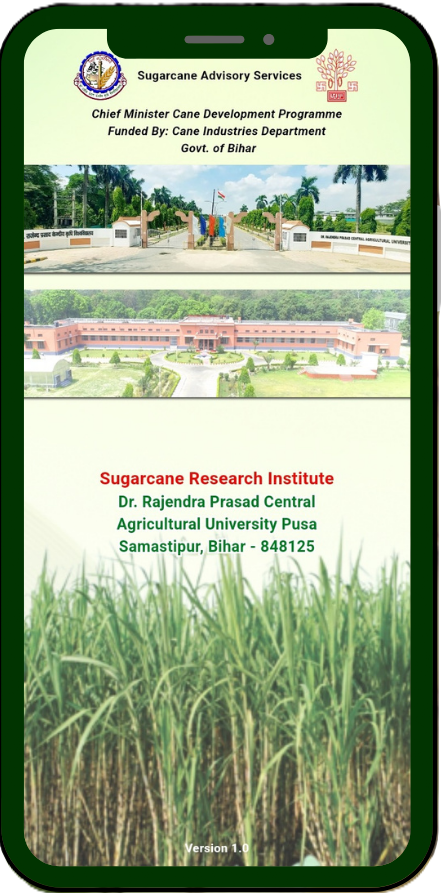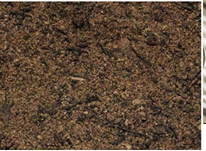
Cane Advisory Services
Sugarcane Research Institute
Dr. Rajendra Prasad Central Agricultural University
Pusa, Samastipur – 848 125, Bihar, India


Organic matters play an important role in the sustainability of soil productivity in a cropping system. Nutrient imbalance created by continuous use of plant nutrients particularly N alone or applied with suboptimal rates of other nutrients is the root cause of non-sustainable yields in a cropping system. However, only organic source of plants may not support the sustainability concept/ Therefore, nutrient supply through organic manures and chemical fertilizers is extremely important for the sustainability of a cropping system. Organic manure play a direct role in supplying macro and micro nutrients and an indirect one by improving the physical, chemical and biological properties of the soil. These manures besides supplying nutrient to the current crop very after leave substantial residual effect on succeeding crop in the system. Green manures prove better in economizing fertilizer N, improving fertilizer use efficiency and increasing cane yield. Green manuring with sunhemp, dhaincha or any other suitable legumes may be used which contribute nitrogen in soil.
Sugar Industry Waste
• The Indian sugar industries are generating about 8-10 million tonnes of molasses, 45-50 million tonnes of bagasse and 10 million tons of press mud as a valuable by product. The sugarcane waste contains valuable plant nutrients, composting of these wastes give a good solution as a waste disposal method, besides increasing the availability of plant nutrients and saving of chemical fertilizers.
• Sugar industry wastes have the potential to raise soil productivity by improving physical, chemical & biological properties of soil, thereby improvising the yield of sugarcane. Due to scarcity of chemical fertilizer and its increasing price there is necessity to utilize these waste products by adopting suitable technologies which has potential to improve yield of crop and to maintain the soil health.
• The main by products of sugar industries are bagasse, molasses and pressmud. Besides these, there are other by-products viz. sugarcane trashes, sugarcane tops, boiler or fly ash and distillery effluents, which have also important commercial values.
• The waste material produced in sugar industry can be converted into valuable products by adopting suitable technologies and it creates employments opportunity especially in rural areas and in turns improves the economic status of people involved in these industries. In addition, the most important aspect of utilizing these by products is that it helps in minimizing the pollution hazards.
Pressmud
• Pressmud is an organic by product obtained from sugarcane juice before crystallization of sugar and it is produced @ around 3% of weight of cane in sulphitation factories and 7% in carbonation factories. Pressmud have a great potential in supplying the nutrients and organic matter.
• On an average Pressmud contains 1.0 to 3.0 percent N, 0.6 to 3.6 percent P, 0.3 to 1.8 K per cent and 33-46 percent organic carbon small quantities of micronutrients. Pressmud an important waste produced by sugar industry may be utilized as a source of organic manures.
• Sulphitation presumed are rich in plant nutrients and sulphur. They are found to be useful in the reclamation of problematic soils and in increasing yield of sugarcane and its quality.
• Integrated use of sulphitation press mud cake with fertilizer N increases the yield of sugarcane in calcareous soils Bihar. The inclusion of organic manure with N-fertilizer resulted in significant increase in yield of plant crop and substantial residual effect on ratoon crop.
• The integrated use of organics and inorganics can replace and sustain soil fertility and productivity. The application of 25% N through FYM/sulphitated pressmud with 50 and 75% NPK along with biofertilizers in sugarcane plant and addition of trash and biofertilizer in ratoon crop may be used for sustaining sugarcane productivity and economizing the use of chemical fertilizer with substitution of 25% N with organic manure in sugarcane plant-ratoon system.
Sugarcane trash
• Sugarcane produces large amount of foliage and trash produced @ 10-20% of total biomass. About 5-8 tonnes of trash can be obtained from one ha of sugarcane. Every ton of sugarcane trash contains about 5.4 N, 1.3 P2O5, 3.1 Kg of K2O and small quantities of micronutrients.
• Sugarcane trash management is important for improving soil organic carbon and fertility status of soil underneath intensive rice-wheat –sugarcane-cropping system. The sugarcane trash has a great potential to supply organic matter and its addition in soil was found beneficial for increasing cane yield and maintaining soil health.
• The integrated use of organic and inorganic plant nutrient sources not only recycles organic waste but also conserves rich pool of nutrients resources, which can reduce the sole dependence on chemical fertilizers.
• Sugarcane trash is a potential source of organic matter. Trash is capable of adding about 12 kg N/ha which is renewable and inexpensive source of N. Recycling of crop residues to the soil in contrast to their removal/burning in situ improves soil quality.
